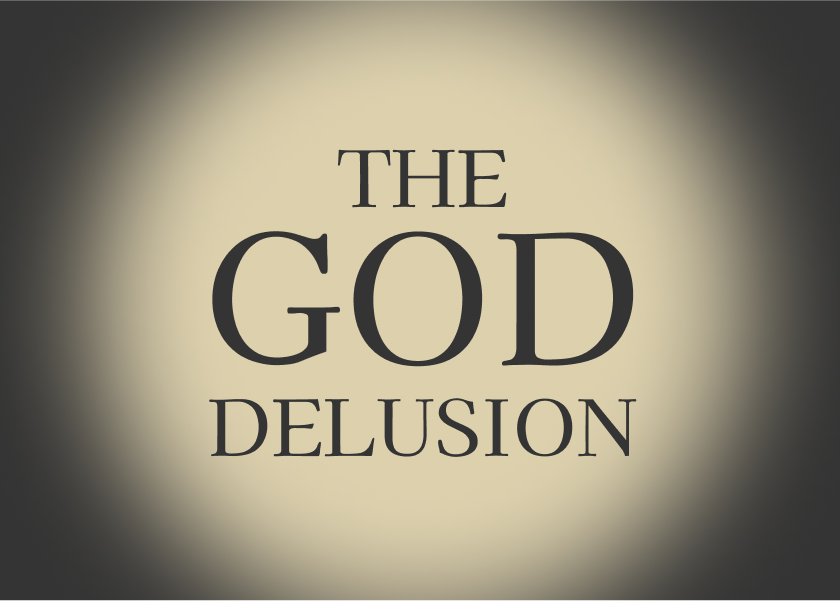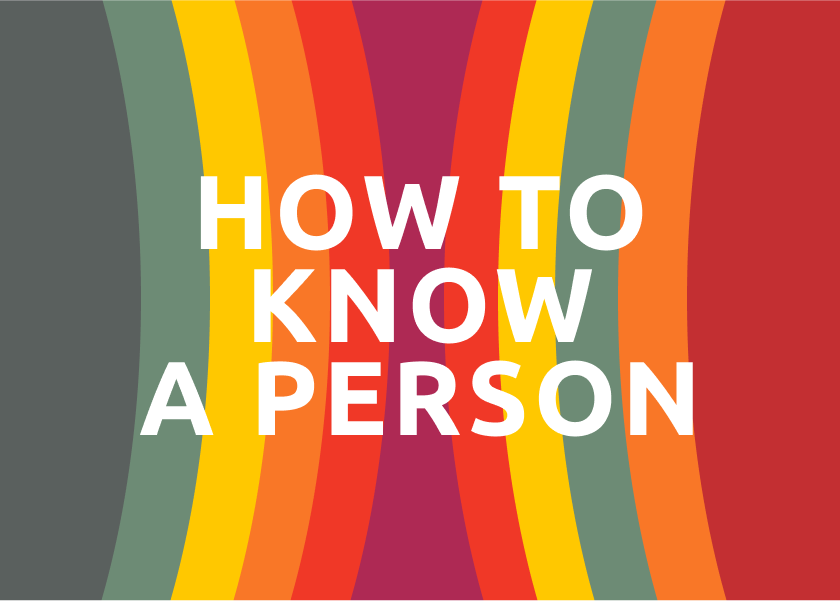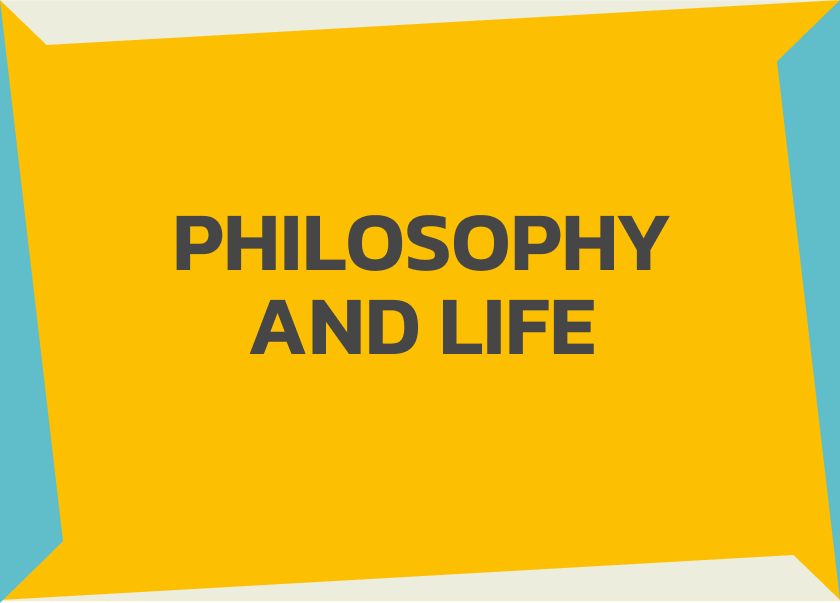Waking Up by Sam Harris - Summary
Unravel the illusion of self and discover a deeper spirituality beyond religion. Explore consciousness, meditation, and the path to true well-being. Wake up to a new understanding of your mind.

The following is a summary and review of the book Waking Up by Sam Harris.
A Guide to Spirituality Without Religion
Are you seeking a deeper understanding of yourself and the nature of consciousness, but find yourself alienated by religious dogma and outdated beliefs? In a world increasingly divided by faith and yet yearning for meaning, can spirituality exist outside the confines of traditional religion? Sam Harris, a prominent neuroscientist and bestselling author, tackles these profound questions in his thought-provoking book, Waking Up: A Guide to Spirituality Without Religion. This book has resonated with a wide audience by offering a rational and evidence-based pathway to spiritual exploration, grounded in contemplative practice and a scientific understanding of the mind.
This article provides a comprehensive summary of Waking Up, outlining its key arguments, core insights, and actionable takeaways. By reading this summary, you can gain a solid understanding of Harris's perspective, saving you time while equipping you with valuable insights into the nature of consciousness, the illusion of self, and the potential for genuine spiritual experience in a secular world.
Table of Contents
- About the Author
- Who Should Read This Book?
- Key Insights and Themes
- Detailed Summary
- Review
- Actionable Takeaways
- FAQs
- Conclusion
About the Author
Sam Harris is a neuroscientist, philosopher, and author renowned for his critical examination of religion and his advocacy for reason and secular ethics. He is a New York Times bestselling author of several influential books, including The End of Faith, Letter to a Christian Nation, The Moral Landscape, Free Will, and Lying. With a background in cognitive neuroscience and a long-standing interest in meditation and contemplative practices, Harris brings a unique and rigorous perspective to the exploration of spirituality. His work often aims to bridge the gap between scientific understanding and profound human experiences, seeking a path to well-being that is both intellectually honest and personally transformative.
Who Should Read This Book?
Waking Up is an essential read for a diverse audience, including:
- Skeptics and atheists who are curious about the potential for spiritual experiences but are wary of religious dogma and supernatural claims. Harris provides a framework for understanding spirituality through the lens of science and personal experience, offering a path that doesn't require faith.
- Individuals seeking personal growth and well-being who are interested in the practical benefits of mindfulness and meditation. The book offers an introduction to these practices and explains their psychological and neurological underpinnings.
- Those disillusioned with traditional religion who are looking for a meaningful and ethical framework for life that transcends religious doctrines. Harris argues for the existence of profound human experiences and ethical values that are independent of religious belief.
- Anyone interested in the nature of consciousness and the illusion of self. The book delves into these complex topics, drawing on neuroscience, philosophy, and contemplative traditions to offer new perspectives.
- Practitioners of meditation who wish to understand their experiences within a broader scientific and philosophical context. Harris shares his own contemplative journey and examines various meditation techniques.
Essentially, Waking Up is for anyone seeking a rational, evidence-based, and personally relevant approach to spirituality that is free from religious dogma and superstition.
Key Insights and Themes
Here are some of the key insights and themes explored in Waking Up:
- Spirituality can and should be separated from religion. True spirituality, according to Harris, is concerned with cultivating positive qualities like compassion and understanding the nature of consciousness, and this pursuit does not require religious belief or dogma.
- The feeling of "self" or "ego" is an illusion. Through introspective practices like meditation, it is possible to directly experience the lack of a permanent, discrete self. This insight can be profoundly liberating and reduce suffering.
- Mindfulness and meditation are powerful tools for understanding the mind and cultivating well-being. These practices allow us to observe our thoughts and emotions without being carried away by them, leading to greater clarity and emotional regulation.
- Consciousness is the foundation of all our experience. Understanding its nature and learning to intentionally transform its contents is central to spiritual life.
- Enlightenment is not a mystical or religious attainment but a deeper understanding of the way things are, particularly the illusory nature of the self. This understanding can lead to a more profound sense of peace and well-being.
- Certain psychoactive substances, when used responsibly and in the right context, can provide temporary glimpses into altered states of consciousness that may have spiritual significance. However, these are not a substitute for dedicated contemplative practice.
- The pursuit of happiness is often misguided. True well-being arises not from constantly chasing positive experiences but from understanding and transcending the underlying causes of suffering within the mind.
Detailed Summary
Waking Up is structured around five main chapters, each exploring a crucial aspect of spirituality without religion.
1. Spirituality
Harris begins by addressing the animosity many feel towards the term "spiritual", particularly among skeptics and atheists. He clarifies that he uses the word to refer to the efforts people make to fully bring consciousness into the present moment, often through meditation or other contemplative means. He argues that separating spirituality from religion is reasonable, acknowledging the dangers of religious doctrines while affirming that there is more to understanding the human condition than purely secular perspectives admit.
He critiques the notion that all religions are the same, dismissing the idea of a "Perennial Philosophy" as breaking down upon closer inspection. Harris contrasts the dogma and faith-based nature of Abrahamic religions with the more empirical and experience-based approach found in traditions like Buddhism. He highlights Buddhism's focus on the primacy of the mind and its teachings that present the Buddha as an ordinary human who awakened to the nature of his own mind.
Harris introduces mindfulness as a translation of the Pali word sati, meaning "clear awareness". He describes the four foundations of mindfulness outlined by the Buddha: the body, feelings, the mind, and the objects of mind. He emphasises that the totality of one's experience can become the field of contemplation. He provides simple instructions for mindfulness of breathing meditation as a foundational practice.
Finally, Harris touches upon the truth of suffering (dukkha), noting that even those who seem to have everything can experience subtle forms of dissatisfaction and that we are often prisoners of our thoughts. He defines enlightenment not as a magical state but as a profound understanding of the mind, attainable through contemplative insights and training. He asserts that true spiritual goals involve a clearer understanding of the way things are, leading to greater happiness and a better world.
2. The Mystery of Consciousness
Harris delves into the notoriously difficult problem of defining consciousness from a scientific perspective. He references Thomas Nagel's thought experiment about what it is like to be a bat to illustrate the subjective nature of conscious experience. He argues that consciousness is not merely a body of atoms but the ever-changing contents of our awareness. He dismisses attempts to link spirituality to quantum mechanics as misunderstandings of mainstream physics.
He explores the "mind divided" through the study of split-brain patients, revealing the surprising degree of independence between the two hemispheres. This demonstrates that the unity of our conscious experience may be more of an emergent phenomenon than an intrinsic property. Harris discusses the structure and function of the brain, highlighting the left hemisphere's role in language and the right hemisphere's involvement in spatial awareness and emotional processing.
He examines the extent to which our minds might already be split and explores the role of conscious and unconscious processing in the brain. He provides examples of how subliminal stimuli and unconscious processes can influence our thoughts, feelings, and actions. Harris concludes by asserting that consciousness is what matters most to our experience and that understanding it is essential for living a good life.
3. The Riddle of the Self
This chapter tackles the elusive nature of the "self". Harris points out that while we have a strong feeling of being a distinct "I," this feeling is ultimately an illusion. He questions "What Are We Calling 'I'?", suggesting that this sense of self is not a fixed entity but a constantly changing stream of thoughts and sensations.
He discusses the possibility of consciousness without self, drawing on contemplative experiences where the sense of a central "me" disappears while awareness remains. He describes how we often get "Lost in Thought," mistaking our ongoing inner monologue for our true identity.
Harris highlights "The Challenge of Studying the Self" scientifically, noting that much of the research on self focuses on broader concepts like self-awareness rather than the specific feeling of being a subject of experience. He explores phenomena like out-of-body experiences and neurological conditions that can disrupt the sense of self. He then delves into "Penetrating the Illusion," suggesting that through careful introspection, particularly through meditation, one can directly experience the lack of a permanent self. He references the work of philosophers like David Hume, who also questioned the existence of a stable self.
4. Meditation
Harris presents meditation as a primary method for investigating the illusion of self and transforming consciousness. He notes that psychologists and neuroscientists now acknowledge the mind's tendency to wander. He discusses the default mode network in the brain and how meditation can alter its activity.
He touches upon the debate between gradual versus sudden realisation in contemplative traditions. He introduces Dzogchen, a Tibetan Buddhist practice that "takes the goal as the path," aiming for direct insight into the nature of awareness. He explores the teachings of Douglas Harding and his self-discovery leading to the insight of "Having No Head," a direct experiential understanding of the lack of a central self. He contrasts Harding's clear descriptions with the dismissal from some in the scientific community.
Finally, Harris addresses "The Paradox of Acceptance," suggesting that true change and well-being often arise not from striving or resisting but from fully accepting the present moment.
5. Gurus, Death, Drugs, and Other Puzzles
In this chapter, Harris examines various phenomena often associated with spirituality. He offers a critical perspective on gurus, noting the potential for exploitation and delusion within guru-disciple relationships. He stresses the importance of intellectual honesty and discernment when engaging with spiritual teachers.
He explores "Mind on the Brink of Death," critically analysing near-death experiences (NDEs) and the claims made about them, particularly focusing on the case of neurosurgeon Eben Alexander. Harris highlights the scientific inconsistencies and potential for misinterpretation in such accounts.
Harris then discusses "The Spiritual Uses of Pharmacology," acknowledging that certain psychedelic drugs can induce altered states of consciousness that some interpret as spiritual experiences. He shares his own experiences with such substances while cautioning against their misuse and advocating for a nuanced understanding of their potential and risks . He suggests that these substances might temporarily "open the tap" to different modes of consciousness, but they are not a substitute for genuine contemplative work.
Conclusion
In the final section, Harris reiterates the value of a rational approach to spirituality, one that is grounded in personal experience and scientific understanding rather than blind faith. He argues that by recognising the illusory nature of the self and cultivating mindfulness, we can access deeper states of well-being and ethical behaviour without relying on religious dogma. He sees this approach as filling a "great hole in secularism," allowing for a meaningful exploration of inner experience that is compatible with reason.
Review
Waking Up is a compelling and intellectually stimulating exploration of spirituality for the secular age. Harris's strength lies in his ability to articulate complex ideas about consciousness, the self, and meditation in a clear and accessible manner, grounded in both his personal contemplative experience and a solid understanding of neuroscience and philosophy. He successfully challenges the notion that spirituality is inherently tied to religion, offering a rational and evidence-based path to self-discovery and well-being.
One of the book's significant strengths is its emphasis on practical techniques, particularly mindfulness meditation, providing readers with a tangible way to explore the concepts discussed. Harris's willingness to share his own experiences, including those with psychedelics, adds a layer of personal authenticity to the discussion . His critical analysis of gurus and near-death experiences is also a valuable contribution, encouraging a healthy skepticism within the realm of spiritual inquiry.
However, some readers may find Harris's sometimes critical tone towards religion off-putting, even though his aim is to disentangle spirituality from its often dogmatic and divisive aspects. Additionally, while he touches upon various contemplative traditions, his focus leans heavily towards Buddhist and Advaita Vedanta perspectives, which might not resonate with everyone. Some might also argue that his definition of spirituality, while grounded in direct experience, could be seen as somewhat narrow by those who find spiritual meaning in other contexts, such as nature or art.
Overall, Waking Up is a valuable and important book for anyone seeking a deeper understanding of themselves and the potential for spiritual growth within a secular framework. It encourages a critical yet open-minded exploration of consciousness and offers practical tools for cultivating a more mindful and fulfilling life.
Actionable Takeaways
Here’s how to apply these lessons in real life:
- Begin a practice of mindfulness meditation. Follow the simple instructions provided in the book (or access guided meditations online) to start cultivating greater awareness of your breath and the present moment.
- Pay attention to your thoughts without judgment. Notice the constant stream of your inner monologue and try to recognise thoughts as transient appearances in consciousness, rather than as definitive statements of reality.
- Reflect on the feeling of "self." Introspectively examine the sense of "I" – where does it feel located? Is it a constant entity? Explore the possibility that this feeling is an illusion.
- Cultivate gratitude. Regularly take time to appreciate the good things in your life, as this practice has been shown to increase feelings of well-being.
- Approach spiritual claims with intellectual honesty and healthy skepticism. Be wary of dogma, unsubstantiated claims, and the potential for delusion in both religious and spiritual contexts.
- Focus on direct experience. Prioritise your own contemplative practice and insights over reliance on external authorities or beliefs.
- Consider exploring secular resources for mindfulness and meditation. Many apps, books, and teachers offer non-religious approaches to these practices.
FAQs
- What is Waking Up about? "Waking Up" is a guide to spirituality without religion by Sam Harris. It explores the nature of consciousness, the illusion of self, and the practical benefits of mindfulness and meditation as a path to well-being, free from religious dogma and supernatural claims.
- Is Waking Up worth reading? Yes, "Waking Up" is highly recommended for individuals seeking a rational and evidence-based approach to spirituality. It offers insightful perspectives on the mind, practical guidance on meditation, and a compelling argument for a spiritual life grounded in reason and personal experience.
- What is Sam Harris's definition of spirituality in the book? Harris defines spirituality as the efforts people make, through meditation, psychedelics, or other means, to fully bring consciousness into the present moment. He distinguishes it from religion, which involves beliefs about immaterial souls, supernatural beings, and dogma.
- Does the book promote or reject religion? While "Waking Up" advocates for a form of spirituality, it is highly critical of religious dogma, superstition, and the harmful consequences of certain religious beliefs. Harris argues for separating the valuable aspects of contemplative wisdom from the often-unjustified claims of organised religion.
- What are the main practices discussed in Waking Up? The main practice discussed is mindfulness meditation, particularly mindfulness of breathing. The book also touches upon other contemplative techniques and the potential, as well as the risks, associated with using psychedelic substances in a spiritual context.
Conclusion
Waking Up offers a refreshing and much-needed perspective on spirituality in our increasingly secular world. By rigorously examining the nature of consciousness and the illusion of self through the combined lenses of neuroscience, philosophy, and contemplative practice, Sam Harris provides a compelling roadmap for those seeking genuine spiritual insight without the baggage of religious belief. The book's emphasis on practical techniques like mindfulness meditation empowers readers to explore their own minds and cultivate a deeper sense of well-being in this life, the only one of which we can be certain. If you are curious about the profound possibilities of human experience beyond the confines of traditional religion, Waking Up is an invaluable guide that will encourage you to look inward and discover a more authentic and rational path to spiritual awakening.
As an Amazon Associate, ShelfHelp may earn money from qualifying purchases. Needless to say, ShelfHelp only includes affiliate links to books we recommend and think are worth your time reading.




